Elementary math is both fun for the kids and easy for parents to teach with Apologia’s Exploring Creation with Mathematics curriculum for homeschoolers!
It’s no secret that I love Apologia and have used their homeschool curriculum for years! However, I realized that I had a habit of just looking to use their science and Bible products. In fact, my youngest set of twin boys just finished up Apologia General Science for middle schoolers (Read my Apologia General Science review here). My oldest set of twin boys are finishing up Apologia Chemistry and my daughter is completing Apologia Advanced Biology. (You can read my Apologia Chemistry review here).
I don’t know why it never really dawned on me to actively seek out Apologia for subjects other than science and Bible. Correction – I do know why. I am a creature of habit and I’m not fond of change. If I find something that is working, I tend to stick with it, even if there could possibly be something that would work even better! So, yeah, I’m kicking myself a bit with this one!
I just got my hands on the Apologia homeschool elementary math curriculum, Exploring Creation with Mathematics for grades 1-3. Awh man, I wish I would have known about this when my kids were younger! My kids and I would have LOVED using it!
It’s too late for us (my youngest are 14), but perhaps that’s not the case for you! If you’ve got a child in grades 1-3, I encourage you – do NOT be like me! Don’t be afraid of change! The change you’re avoiding may just be the change that you didn’t know you or your child needed!
So, be sure you check out Apologia’s Exploring Creation with Mathematics so you aren’t kicking yourself like I am!
Real-life Application, Hands-on Activities & Skills Practice
As a mathematics major in college and a former high school math teacher, making math meaningful has been important to me for a long time! I love the way Apologia approaches this through real-life math applications, hands-on activities, skills practice and more!
Each day, Exploring Creation with Mathematics has the student spend 5-10 minutes reviewing a previously-learned skill, while providing relevant options for the parent and student to consider based on their needs.
Since memorization of math facts are a large part of mathematics at the elementary level, students are also assigned daily skills practice. Plus, easy-to-set up games and activities are listed in the Teaching Guide.
The incorporated review, skills practice, and preparation from current knowledge provide an excellent base for learning new concepts!
More About Apologia’s Elementary Math Curriculum
Apologia’s Exploring Creation with Mathematics is a complete homeschool elementary math curriculum currently available for grades 1-3. Each level consists of a student notebook and a teaching guide/answer key. Both the student notebook and teaching guide are bright, colorful, and engaging.
Inside Exploring Creation with Mathematics, you’ll find:
- Fun and engaging activities
- Skills Practice
- Ease of Use
- Christian Connections
- Bonus Content Online

The concepts covered in each level are listed below:
[one-third-first]
- Introduction to Addition
- Addition and Subtraction
- Place Value
- Measurement and Data
- Geometry
[/one-third-first]
[one-third]
- Number Sense and Place Value
- Addition and Subtraction with Two-Digit Numbers
- Money and Time
- Addition and Subtraction with Three-Digit Numbers
- Measurement and Data
- Geometry
[/one-third]
[one-third]
- Addition and Subtraction up to 1000
- Multiplication
- Division
- Data and Measurement
- More Multiplication and Division
- Fractions
- Geometry
[/one-third]
Not sure what level would be appropriate for your child? Check out the placement guide.
Apologia Homeschool Math: Easy to Teach & Fun for the Kids
If teaching math sparks a bit of fear, not to worry! Apologia makes teaching math easy in the Exploring Creation with Mathematics curriculum! The Teaching Guide not only provides answers for the assignments, it also includes a complete week-by-week daily schedule so you know exactly what to do each and every day!
No need to guess or try to wing it – it’s all laid out for you! Having the completed lesson plan is a HUGE bonus!
But, my favorite part of the curriculum is how they provide additional methods of teaching, reviewing, and reinforcing mathematical concepts in ways in which kids don’t even realize they are learning – because they are simply having fun!
In my experience, children tend to retain more when they actually enjoy what they are doing! So, why not make math more fun! Apologia understands this concept! The spiral-bound, student notebook and the teaching guide are filled with such opportunities.
For example, to practice basic subtraction skills, students get to use this super fun subtraction game board!
I don’t know about you, but my boys would have preferred practicing subtraction using a fun game like this, rather than using a bunch of boring black and white worksheets or flashcards!
Even more fun would be practicing subtraction by bowling! Yep, that’s included in the lessons! The curriculum is filled with activities like these to help make learning more interactive, engaging and fun!
Check out what the author of the curriculum, Kathryn Gomes, has to say about Exploring Creation with Mathematics:
Discount & Giveaway
So, are you convinced that you don’t want to be like me? If so, make sure you check out Apologia’s Exploring Creation with Mathematics for elementary homeschool math! It may just be the change that you and your child need when it comes to elementary math education!
With that said, the folks at Apologia have set up a giveaway for Mama Jenn readers! Two winners will receive an Exploring Creation with Mathematics Basic Set! The winner gets to choose from levels 1, 2, or 3! Use the widget below to enter to win.
It’s on SALE!
If you can’t wait to see if you win, don’t worry! Apologia’s elementary math curriculum is currently on sale! From now through August 3rd, you can get up to 25% off of selected Apologia products! Head on over to see all the sales!
Learn More about Exploring Creation with Mathematics
This post was originally published on July 18, 2021.

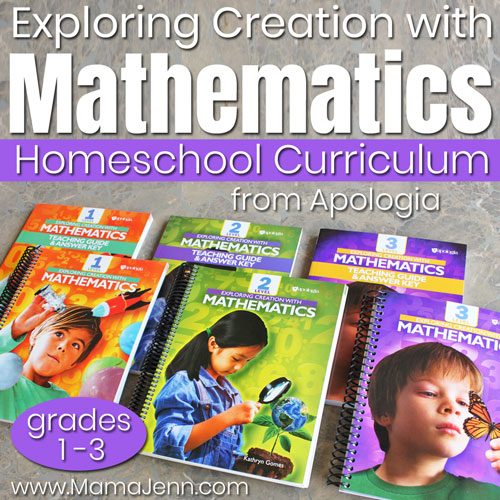
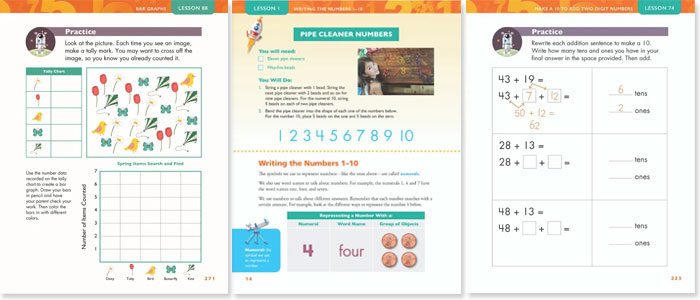
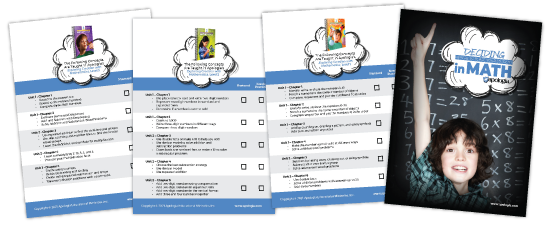
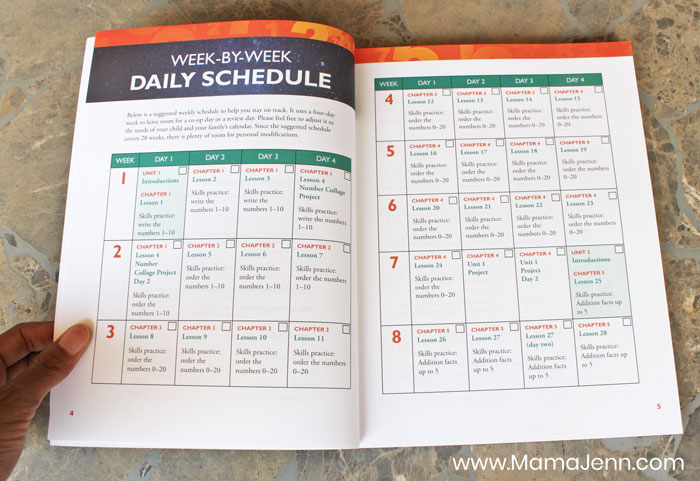
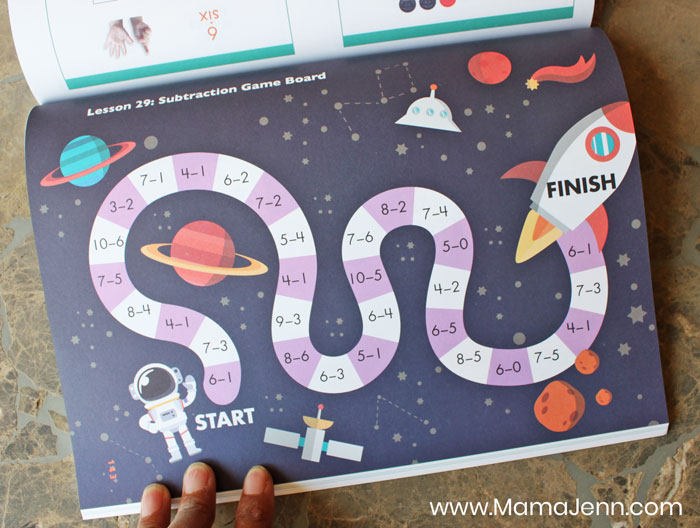
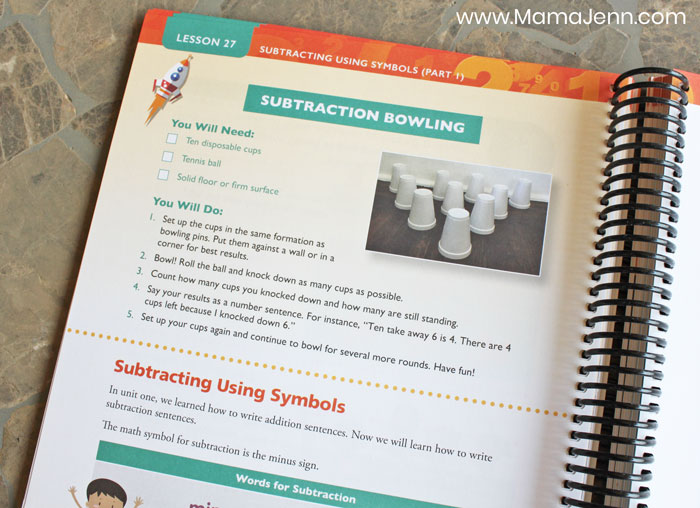

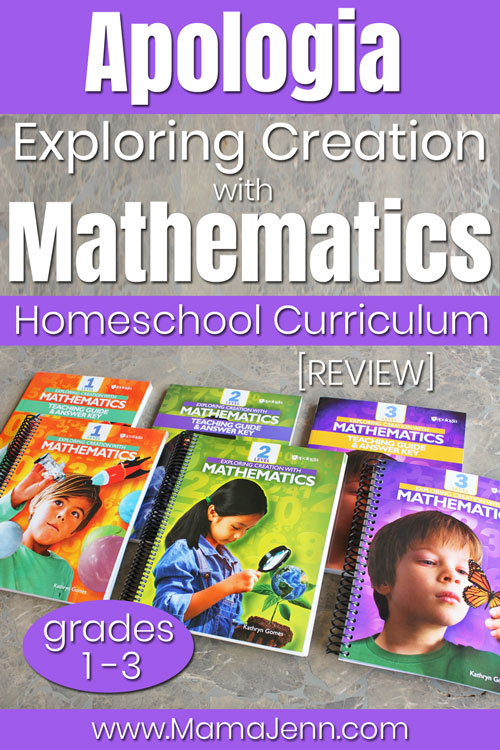
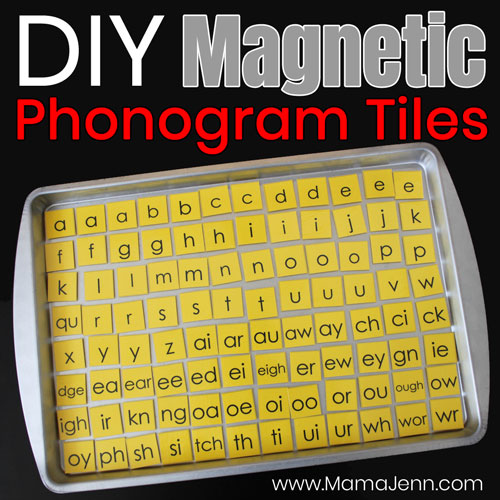 DIY Magnetic Phonogram Tiles
DIY Magnetic Phonogram Tiles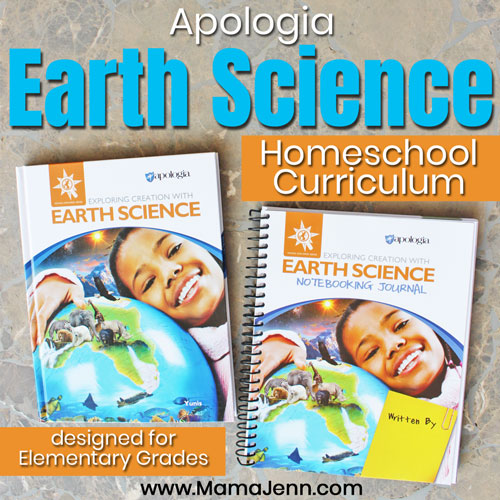
Leave a Reply